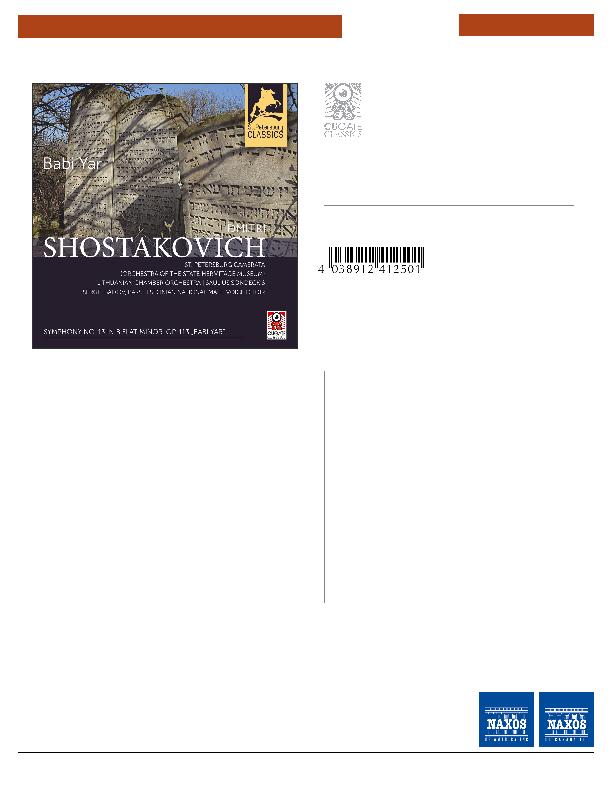
35
CLASSICAL AUDIO
CUGATE CLASSICS
· In 1961 Yevgeny Yevtushenko published a poem entitled Babi
Yar in the Literaturnaya gazeta. Babi Yar was the name of a
ravine on the outskirts of Kiev which in 1941 had been the
scene of a mass execution where, within the space of thirty-
six hours, some 34,000 Jewish men, women and children
were shot by a special unit of the German SS.
·
In this poem Yevtushenko used the National Socialists'
act of genocide as the starting-point of an attack on anti-
Semitism in general, which he pilloried as a timeless evil
that was widespread throughout the world, but which, he
implied, was especially rife in Russia.
·
Few Russian composers of the past were above reproach as
far as anti-Semitism was concerned. Of these, the two that
spring most immediately to mind are Rimsky-Korsakov
and Shostakovich. Shostakovich had already revealed his
phil-Semitic sympathies in his song-cycle From Jewish Folk
Poetry, written during the final years of Stalinism but forced
to wait until 1955 for its first performance, which finally took
place only against a background of considerable resistance.
·
It was enough for the composer to read Yevtushenko's Babi
Yar for him to decide to set it to music. Initially he thought
in terms of a single movement, but after completing it in
this form he resolved to add four further movements, all of
them settings of other poems by Yevtushenko: Humour, In
the Stone, Fears, and Career.
SYMPHONY NO. 13
DMITRI SHOSTAKOVICH
COMPOSER:
Dmitri Shostakovich
ARTIST:
Sergei Baikov · Estonian National Male-Voice Choir ·
St. Petersburg Camerata · Saulius Sondeckis (conductor)
CGC 021 | 4038912412501
1 CD | SRP:
US
$12.99
CA
$15.99
09/09/16
RELEASE DATE:
DISTRIB
UTED BY
NAXOS OF AMERICA | NAXOS OF CANADA | NEW RELEASE
PHYSICAL ONLY

